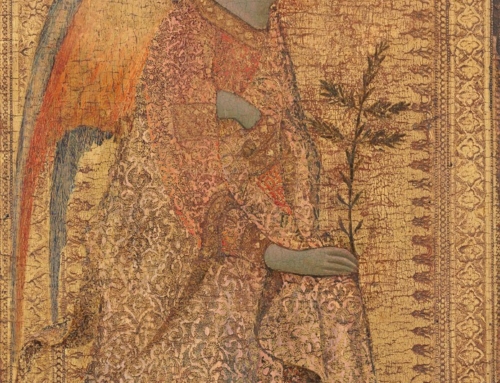 I was brought up as an Evangelical fundamentalist Christian and when we read the verses in the Bible that spoke of Jesus’ “brothers and sisters” we concluded that they were the other children of Joseph and Mary. What I didn’t know is that this idea was unheard of in the early church, and that even the Reformers–Martin Luther, John Calvin and the others did not hold to this view.
I was brought up as an Evangelical fundamentalist Christian and when we read the verses in the Bible that spoke of Jesus’ “brothers and sisters” we concluded that they were the other children of Joseph and Mary. What I didn’t know is that this idea was unheard of in the early church, and that even the Reformers–Martin Luther, John Calvin and the others did not hold to this view.
The Catholic Church had always taught that the “brothers and sisters” of Jesus mentioned in the gospels were Jesus’ “kinsmen”–either the children of Joseph by an earlier marriage or more likely–members of Jesus’ extended family. The original Biblical languages are short on vocabulary for extended family members and so cousins and nephews and half brothers were all called “brothers”.
Furthermore, we judge the family situation based on our experience of the American suburban nuclear family with Mom, Dad and offspring. Many cultures have a more fluid experience of family in which extended families live together in the same village or even in the same housing compound and cousins, half brothers and sisters all grow up together as calling one another ‘brother’ and ‘sister’.
The first time it was suggested that the “kinsmen” of Jesus were the other children of Joseph and Mary was by a theologian named Helvidius in the fourth century. This idea was opposed adamantly by St Jerome. The simple fact is that the gospel is not clear on who the “brothers and sisters” are and whether you think they are Jesus’ extended family members or other children of Joseph and Mary really depends on your underlying assumption about the perpetual virginity of the Blessed Virgin.
The question of whether Mary and Joseph had sexual relations and the implications of that question are complex, and it lead us to consider the dogma of the perpetual virginity of the Blessed Virgin. What does the dogma mean and why does it matter? Read more.
More Reading: Once a Virgin-Always a Virgin? is a long article from the Archived Articles section of the blog. It is an edited version of chapter four of my book Mary-An Evangelical Catholic Debate written by David Gustafson. Purity is Power discusses the nature of Mary’s perpetual virginity, and what it means for us. Mother Mary is a short post which explains the different Marian dogmas simply.



Leave A Comment
You must be logged in to post a comment.